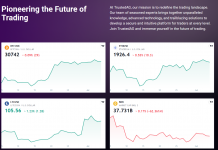 Could the currency, which is totally decentralized and independent from any regulations, be considered as a currency? This question is asked by the economists, politicians and experts all over the world. Classification of Bitcoin is a matter of many disputes – virtual coins have as many followers as opponents, who argue about pros and cons of using BTC.
Could the currency, which is totally decentralized and independent from any regulations, be considered as a currency? This question is asked by the economists, politicians and experts all over the world. Classification of Bitcoin is a matter of many disputes – virtual coins have as many followers as opponents, who argue about pros and cons of using BTC.
Bitcoin and definition of money
As often as Bitcoin is treated as a currency, in many cases it doesn’t cover the classic money definition. Economists believe that some asset can be considered as a currency, if it has its value secured, there is an exchange place and a unit.
Price and volatility
According to researchers from Boston University, price volatility of Bitcoin is seven times as high as the one on gold and eight times as high as US stock index S&P 500. Bitcoin Foundation rejects those statements by explaining high volatility with lack of liquidity, however some economists think it’s because of uncertainty about Bitcoin value in the long term. Years ahead should bring higher trade volume (because of plans to run HTF (High Frequency Trading) exchanges) and it should limit huge volatility of virtual coin.
Looking at Bitcoin price, it had a series of uptrends and downtrends. In 2011 its value increased dynamically from 30 cents to 32 dollars to come back again to the level of just 2 USD. Great example is also the end of 2013 when it reached all time high at 1135 USD (more than the price of gold back then) and three days later it lost almost half of its value and was worth just 693 USD.
Alternative to national currencies
Bitcoin more often plays an important role for national currencies among smaller and bigger communities – it becomes local currency. In few US cities local politicians decided to let pay with BTC to improve the situation of regional budget and engage people to become more entrepreneurial.
Supply
Gain of Bitcoin supply is predefined by system protocol. Currently there is 12 million coins in the system – every 10 minutes there are 25 more of them. General supply is blocked and cannot be higher than 21 million, about every four years the amount of coins created is smaller. Some people believe, that the pool of 21 million coins will be closed in 2033, other researchers think it will be mined for another 100 years.
Forecasted value
With that much BTC volatility and sudden crashes of its price, there is no way to make long term forecasts. The biggest world economists were talking about Bitcoin – some of them think, that 40,000 USD for a coin won’t be anything surprising soon, others are forecasting total fail of the system. So far none of these forecasts is true. One thing is sure – if people will be interested in trading and exchanging BTC, its value should not decrease to critical levels. Especially that price is supported by bigger popularity of paying with Bitcoin for services and products.




![Mayrsson TG Reviews: Why Choose Crypto-Trading with Them? [mayrssontg.com]](https://comparic.com/wp-content/uploads/2023/12/image1-218x150.jpg)













